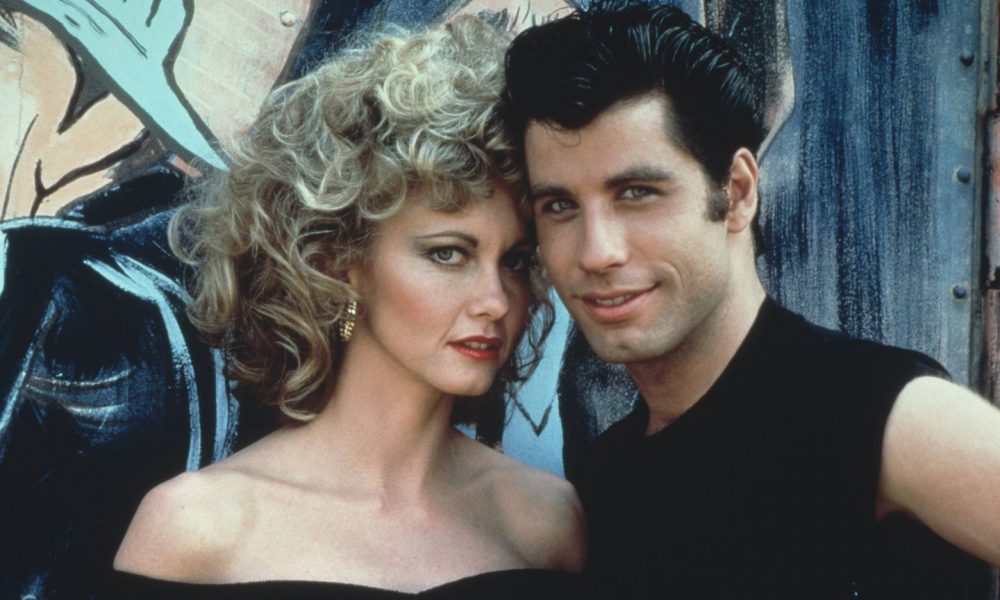‘Grease’: How A Nostalgic Soundtrack Became A Timeless Hit
The multi-artist set skillfully captured the youthful innocence and ebullience of the late 1950s, but also came to represent the musical zeitgeist of the late 1970s.

The August 2022 death of one of the most radiant pop stars and engaging performers in history, Olivia Newton-John, at least had a poignant upside. It shone new light on a catalog of well-crafted singles from “If Not For You,” “I Honestly Love You,” and “Please Mr. Please,” to later entries like “A Little More Love,” “Magic,” and “Xanadu.” It also supercharged modern-day interest in her golden moment on the silver screen, and one of the bestselling soundtrack albums of them all, Grease.
The 1978 film, with its affectionate and skillful recreation of American high school culture of 1958, simply never goes out of date. Its soundtrack, released on April 14, 1978, as a double LP (two months before the film itself) on Robert Stigwood’s RSO label, is one of those records that brilliantly encapsulates the spirit of two completely separate pop eras.
The multi-artist set skilfully captured the youthful innocence and ebullience of the late 1950s and the early days of rock’n’roll. But with sales estimated at 30 million-plus, it was such an astonishing worldwide success that it also came to represent the musical zeitgeist of the late 1970s, too.
Newton-John’s courage in taking on the new challenge of both a major film and its accompanying score was well rewarded. “I was very frightened of losing my traditional following in the States,” she told Record Mirror in 1981. “There, I’ve almost been a country singer. But when I did Grease it turned around and released me to try new things.”
Flying the flag, and announcing the inspired co-star pairing that would make the film lift-off around the world, was Newton-John’s duet with John Travolta, “You’re The One That I Want,” which went to No.1 on almost every chart it entered. Written by John Farrar, a longtime friend, and collaborator that Olivia had known since the mid-1960s, has estimated sales of its own totaling some 6.5 million. “He played it for me and said, ‘What do you think?’” Olivia recalled. “I went, ‘Oh, God, it’s amazing.’ It just had this fantastic energy.”
Among the many master strokes of the album’s production was the involvement of Barry Gibb, red-hot at that time with the Bee Gees’ Saturday Night Fever soundtrack. Coming up with a slick, irresistible title track, he made the brilliant and unexpected choice of Frankie Valli, already a pop veteran of more than 15 years’ success with the Four Seasons, to sing it.
Released as a single in May, “Grease,” also produced by Gibb and with guitar by Peter Frampton, spent two weeks atop the American singles chart in August, selling a million. By then, the album was in the middle of 12 non-consecutive weeks at No.1 on the Billboard 200, as it moved to an official US certification of eight million, but a total in that market alone (including pre-SoundScan sales) thought to be 14 million.
Valli told this writer that he and the Bee Gees had “been fans of each other for an incredibly long time…somehow or another, I got a call from Barry Gibb. He said ‘I wrote this song for the movie Grease, and I think it’s perfect for you, I want you to listen to it.’ And I was blown away. I just knew. I called Don Costa up, who was a dear friend of mine, he came over to the house, I said ‘You’ve got to hear this.’ I played it to him, and this was just Barry and a guitar, is what the demo was, and he said ‘That’s a smash.’”
A total of six single releases was testament to an unstoppable soundtrack, with Travolta and Newton-John providing another lasting anthem in “Summer Nights,” one of no fewer than 14 compositions on the LP by Jim Jacobs and Warren Casey. They also penned Travolta’s rocker “Greased Lightnin,’” while Louis St. Louis and Scott Simon added his ballad “Sandy,” and Farrar the lovely Newton-John ballad “Hopelessly Devoted To You.”
The soundtrack, like the film, had some other winning cameos, including actress Stockard Channing’s charming ballad “There Are Worse Things I Could Do” and a leading vocal role on “Beauty School Dropout” for Frankie Avalon — himself a teen idol of the very period that the film evoked, on hits like “Venus” and “Why.” Rockers Sha Na Na, famed especially for their landmark performance at Woodstock, provided authentic, feel-good rock’n’roll on six more tunes. Grease was the word, and it still is.












